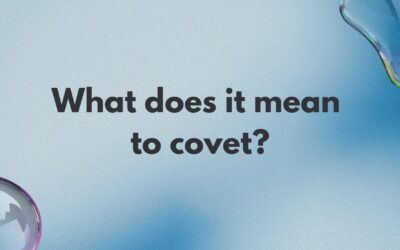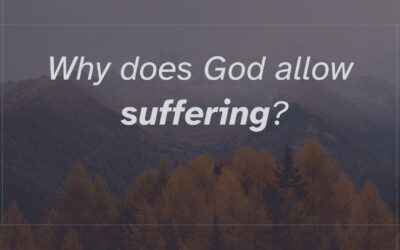What is truth?
How we answer this question will greatly shape our worldview.
Can we know truth? Is truth true for everyone, or is it determined by each of us, depending on circumstances?
The stakes are high, because how we look at truth affects so much of our lives. I would suggest that if we get the answer wrong, we’ll do great harm to ourselves in the long run.
But the flip side is also true. If we get it right, we’ll have a much firmer foundation on which to build.
Simply put: I believe truth is objective and it is knowable. I understand this is at odds with the culture. You’ll be seen as arrogant to make such a claim, as if you have it all figured out.
But something I heard recently reminded me that the fact we don’t know everything does not mean we can’t know anything.
What is objective truth?
The term objective truth means truth that is always true for everyone. I think this is common sense. Most of us know it’s wrong to kill someone else or to mistreat an animal. If someone tells you “It’s my truth that I cut in front of you in line,” you likely won’t agree. And if “truths” are in conflict with one another, whose wins out?
Let’s zoom out for a moment. When we say truth, what do we mean? Some have said that truth corresponds with reality. I think this is a good way to put it. A true statement is one that describes reality. Not what we believe or what we wish to be, but what actually is.
How then do we determine what is true?
A good initial way to test if a claim is truthful is to see if it can survive its own premise. Things like “My brother is an only child,” or “The barefoot boy with shoes on stood sitting in the grass” cannot, because such statements directly dispute themselves.
Likewise is the statement, “There is no objective truth.” Because what you’ve just asserted is that it is objectively true that there is no objective truth. The statement does not survive its own assertion.
It’s the same with “Objective truth is not knowable.” This statement says we know it’s objectively true that objective truth can’t be known. If that is so, we cannot know that this statement is true.
It’s important to clarify something, though. When we say that objective truth is real and knowable, it does not mean that we claim to know everything that’s true.
This is an important distinction, because it’s often assumed that those who make the claim that objective truth exists and that it can be known are saying they know it all. We don’t. The universe is full of mystery, and we are very small creatures, compared with an infinite Creator. But what He has chosen to make known, we can be certain is true.
There are fixed laws of the universe, that if they did not exist, would mean chaos. But because of those laws, we have order, can make mathematical calculations, construct buildings that don’t fall down, and even predict the movement of planets.
You might say these are objectively true, because they describe reality. But beyond facts, which we can establish through scientific discovery, there are things we know to be morally true.
We know murder is wrong, for example. We know the difference between stealing from someone and giving to them. And if someone breaks your car’s window for fun, you don’t have to be told that such a thing is wrong.
So what is it about objective, or absolute, truth that we can’t accept?
If truth is absolute, if it’s true for all people in all times, then we have an obligation to it.
On the other hand, if truth is subjective, if it’s determined by each of us based on what we believe or want, then we are our own authority. We have a trump card to play against things we don’t like.
I think this, too, has echoes of Eden. God’s command was not to eat from the tree of the knowledge of good and evil. “Our truth” was that if we did, we’d be like God, knowing good and evil.
We’ve dealt with the horrible consequences ever since.




